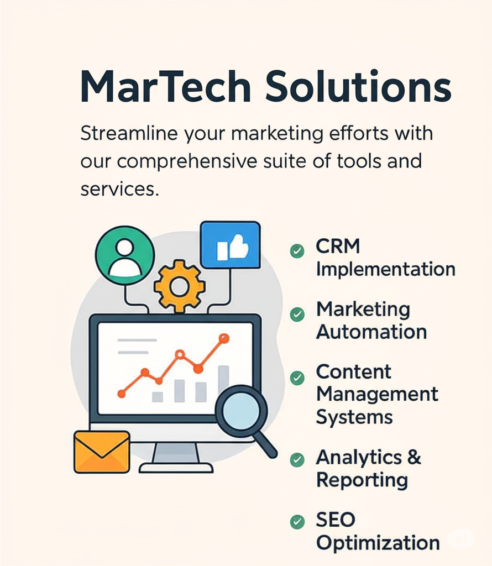
Why Inbound Marketing is Crucial for SaaS Businesses
In the hyper-competitive digital landscape of 2025, SaaS (Software-as-a-Service) businesses are challenged not only to attract new customers but also to retain them in the long run. While building a robust and innovative product remains essential, it is no longer sufficient on its own. Today, the real differentiator lies in how SaaS companies approach customer acquisition and engagement. Inbound marketing has emerged as the most effective strategy, focusing on attracting prospects through valuable content, personalized experiences, and ongoing engagement, rather than relying on disruptive tactics like cold calls or generic advertisements. Let’s explore why inbound marketing is critical for SaaS businesses and how it can be leveraged for maximum growth.
Lowering Customer Acquisition Costs (CAC)
One of the most significant advantages of inbound marketing for SaaS businesses is its ability to reduce customer acquisition costs. Traditional advertising methods such as display ads or outbound sales can be expensive and often yield diminishing returns. In contrast, inbound marketing employs tactics like content creation, search engine optimization (SEO), social media engagement, and targeted email campaigns to draw potential customers in organically. For example, a well-researched blog post that addresses a common customer pain point can generate consistent traffic and leads for months or even years, providing ongoing value without the recurring costs of paid advertising. By investing in high-quality, evergreen content, SaaS companies can build a sustainable pipeline of qualified leads while keeping acquisition costs under control.
Building Authority and Earning Trust
SaaS customers are typically well-informed and conduct thorough research before making purchase decisions. This makes it essential for SaaS companies to establish themselves as credible authorities in their industry. Inbound marketing enables businesses to do just that by publishing insightful blogs, in-depth case studies, and comprehensive whitepapers that address real-world challenges faced by their target audience. Hosting webinars, offering live demos, and creating educational video tutorials further demonstrate expertise and build trust. When prospects see your brand consistently providing valuable information and solutions, they are far more likely to view your company as a trusted partner rather than just another vendor.
Delivering Personalized and Targeted Experiences
Modern SaaS buyers expect highly personalized experiences tailored to their unique needs and challenges. Inbound marketing, supported by advanced analytics and CRM systems, allows businesses to segment their audience and deliver relevant content at every stage of the customer journey. Personalized email campaigns, dynamic website content, and automated workflows ensure that each prospect receives the right message at the right time. This targeted approach not only increases engagement but also improves conversion rates, as potential customers feel understood and valued. In 2025, leveraging AI-driven personalization tools can further enhance this process, providing real-time recommendations and individualized onboarding experiences.
Enhancing Customer Retention and Unlocking Upsell Opportunities
For SaaS companies, customer retention is just as important—if not more so—than acquisition. Subscription-based models depend on keeping customers satisfied and minimizing churn. Inbound marketing plays a crucial role in this area by offering ongoing educational content, regular product updates, and proactive customer support. Engaging existing users through newsletters, tutorials, and community forums helps them maximize the value they get from your product, boosting satisfaction and loyalty. Additionally, these touchpoints provide natural opportunities to introduce new features, upsell premium services, or cross-sell complementary solutions, driving additional revenue from your existing customer base.
Achieving Scalability and Long-Term Value
One of the standout benefits of inbound marketing is its scalability and long-term impact. Unlike paid advertising, which stops delivering results once the budget is exhausted, inbound assets like optimized blog posts, landing pages, and knowledge bases continue to attract and convert leads over time. As your content library grows, so does your reach and authority, allowing your marketing efforts to scale alongside your business. Building a vibrant user community or launching a customer success program can further amplify this effect, turning satisfied customers into brand advocates who help fuel organic growth.
Leveraging Data for Continuous Improvement
Inbound marketing is inherently data-driven, providing SaaS businesses with detailed insights into every aspect of their marketing funnel. Tools such as Google Analytics, HubSpot, and SEMrush allow you to monitor website traffic, track conversion rates, and analyze user behavior. By regularly reviewing these metrics, you can identify what’s working, uncover areas for improvement, and optimize your campaigns for better results. This commitment to continuous improvement ensures that your marketing strategy remains agile and effective in an ever-evolving digital landscape.
Aligning with the SaaS Customer Journey
The SaaS customer journey is often complex, involving multiple stages from initial awareness to consideration, purchase, and ongoing retention. Inbound marketing seamlessly supports each phase by providing the right content and engagement at the right time. During the awareness stage, educational blogs and guides help prospects understand their challenges and potential solutions. In the consideration phase, case studies, product demos, and free trials offer deeper insights and build confidence. After purchase, ongoing support, updates, and community engagement ensure customers continue to see value, reducing churn and increasing lifetime value.
Embracing the Latest Trends in SaaS Inbound Marketing
As we move further into 2025, several trends are shaping the future of inbound marketing for SaaS. AI-driven personalization is enabling businesses to deliver even more relevant and timely content, while conversational and human-centric messaging is replacing traditional corporate tones. Short-form videos and influencer partnerships are becoming powerful tools for reaching new audiences, especially among younger demographics. Additionally, product-led growth strategies—where the product itself drives user acquisition and expansion—are gaining traction, supported by robust inbound content and community-building efforts.
Conclusion: Why Inbound Marketing Is the Future for SaaS
Inbound marketing is no longer just an option for SaaS businesses—it is a necessity for sustainable growth and competitive advantage. By focusing on value-driven content, personalized engagement, and data-backed strategies, SaaS companies can attract, convert, and retain customers more effectively than ever before. The key is to continually adapt, embrace new technologies, and prioritize the customer experience at every touchpoint. With a well-executed inbound marketing strategy, your SaaS business can thrive in the digital age, building lasting relationships and achieving scalable success.
📩 Want to fix your automation? Let’s talk.
📞 Call us: +91 9762910165
📧 Email:info@martechpanthers.com
🌐 Visit: https://martechpanthers.com/

